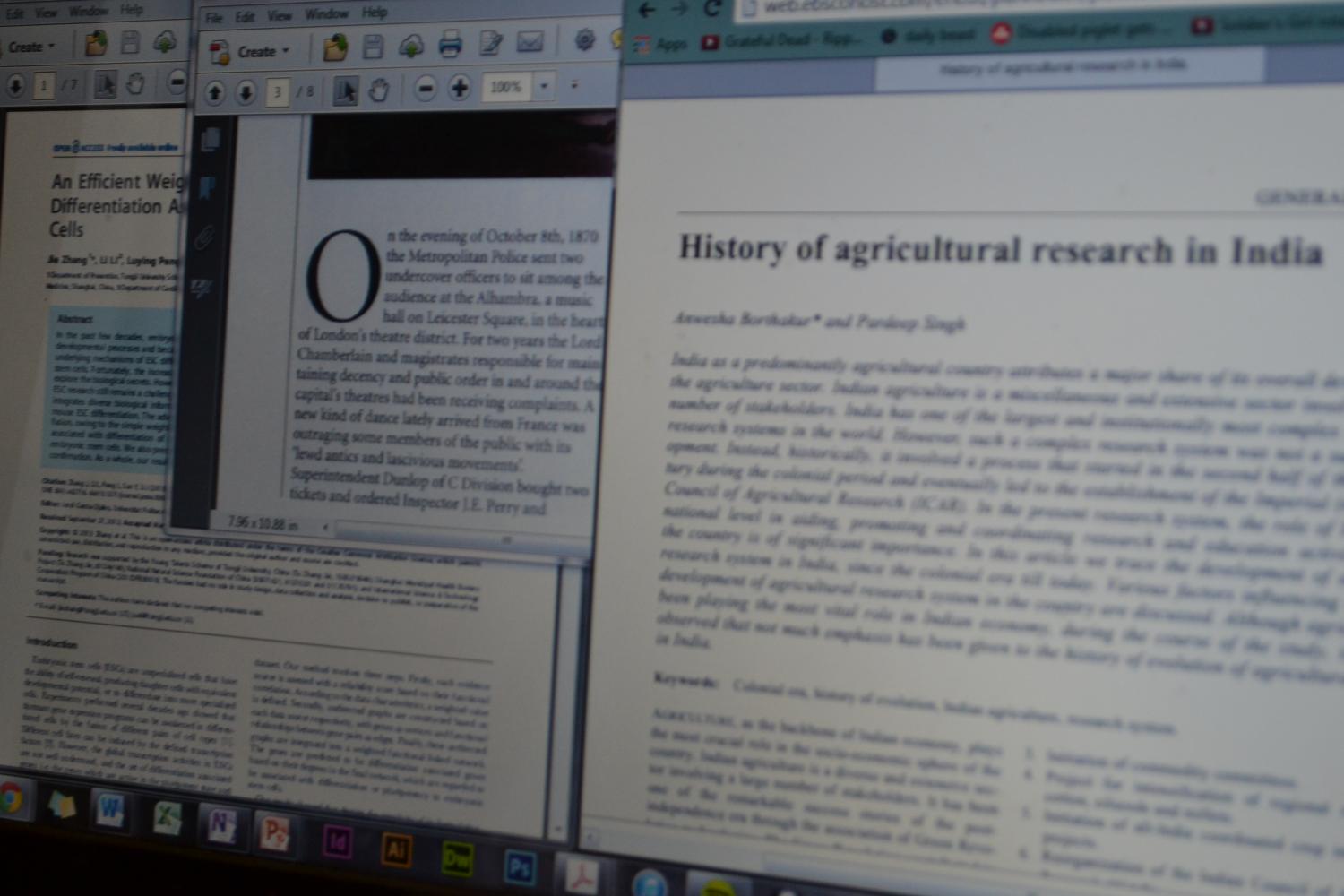To Google or not to Google?
December 6, 2013
The problem is that people do not know how to use research databases to their advantage. American University subscribes to over 400 databases ranging from scientific journals to historical periodicals. But if a student cannot navigate the obscure databases, they can waste a serious amount of time browsing articles in multiple databases to obtain information.
University students therefor have two choices: the “easy to use” keyword search engines that can produce results that are too off-topic for narrowly focused essays, or drudging through dozens of dense scholarly articles. The latter process feels utterly time-consuming in the Google-age. As one American student Caroline Sell stated, “It can take an hours to get the information you’re looking for on a library database. I’d rather take my chances Googling it.” Why do universities pay obscene amounts of money for database subscriptions if students cannot properly use them?
The time consuming nature of database research seemed to be the recurring criticism amongst students on campus who felt they just didn’t have enough time to explore research databases for their weekly multiple papers. For time-strapped college students who spend nights turning out paper after paper in their dorm rooms, the appeal of instant Google gratification far outweighs the consequences of using research that may come from the less than stellar sources.
As one American University librarian I spoke with said, “Most of the time, students don’t realize how different searching through a database is from basic Internet searches, but more often than not using the database will result in a better paper.” She offered a few words of advice, “If students are having issues they should probably come into the library and ask for help. We’re more than happy to show them how to access the information they need more easily.”
Outside of the college bubble, the issue of database accessibility is an issue among libraries. The DC Public Library system subscribes to 80 databases spanning across several subjects that anyone with a DC Public Library card can access.
However, after speaking with a few librarians from the Tenleytown branch and the Petworth branch in Columbia Heights, it became clear that while those who used the databases were able to reap the full benefits of them, many people remain unaware of the capabilities of the databases. As one librarian declared, “Academic databases can be easier to sort through than books and can vastly improve your research abilities if you understand how they work, which is honestly a skill most don’t even know they can have.”



